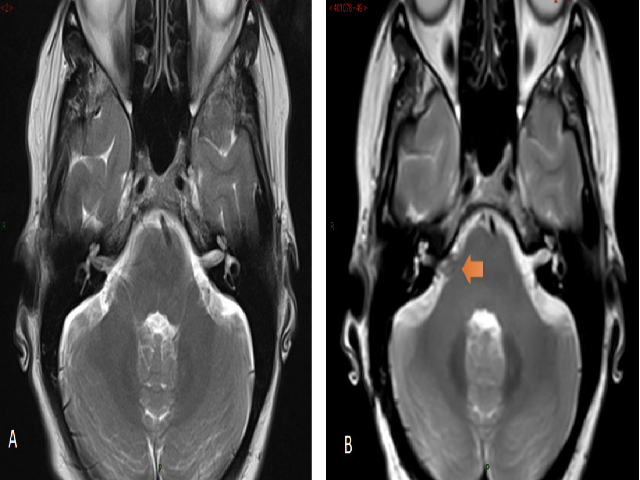Crocodile Tear Syndrome Post Microvascular Decompression of the Trigeminal Nerve: A Case Report and Literature Review
DOI:
https://doi.org/10.5530/bems.9.2.11Keywords:
Crocodile tear syndrome, Microvascular decompression, Trigeminal nerve/neuralgia, Teflon sponge.Abstract
Background: Crocodile Tear Syndrome (CTS) is a condition characterised by excessive tear secretion in response to eating, drinking, or smelling foods. Traditionally, acquired cases are most commonly reported following facial nerve trauma or paralysis, or in slow-growing facial nerve tumours. More recently, it has been reported following vestibular Schwannoma surgery. We report the first case of crocodile tear syndrome following microvascular decompression of the trigeminal nerve. Case Presentation: A 61-year-old lady presented with excessive lacrimation and clear rhinorrhoea one month post-operatively from a re-do trigeminal microvascular decompression (MVD) surgery. The patient experienced similar symptoms following her initial surgery two years prior, which had resolved spontaneously. CT and MRI head, and comprehensive clinical examination showed no evidence of CSF leak from her retromastoid wound site. An ENT opinion was sought, and the patient was diagnosed with post-operative crocodile tear syndrome. Surgical technique and relevant imaging were reviewed for any possible explanation for the condition. We discuss the possible aetio-pathogenesis for the development of the condition following MVD procedure. Conclusion: We conclude that CTS should be considered in patients presenting with CSF rhinorrhoea following MVD of Trigeminal nerve after excluding CSF leak from the middle ear via eustachian tube. Treatment for CTS in this context may pose a challenge. The patient has undergone botulinum toxin injection of the lacrimal gland and will likely need long term follow up. This is the first documented case of CTS post microvascular decompression of the trigeminal nerve.

Downloads
Published
How to Cite
Issue
Section
License
Copyright (c) 2023 Biology, Engineering, Medicine and Science Reports

This work is licensed under a Creative Commons Attribution-NonCommercial-NoDerivatives 4.0 International License.









